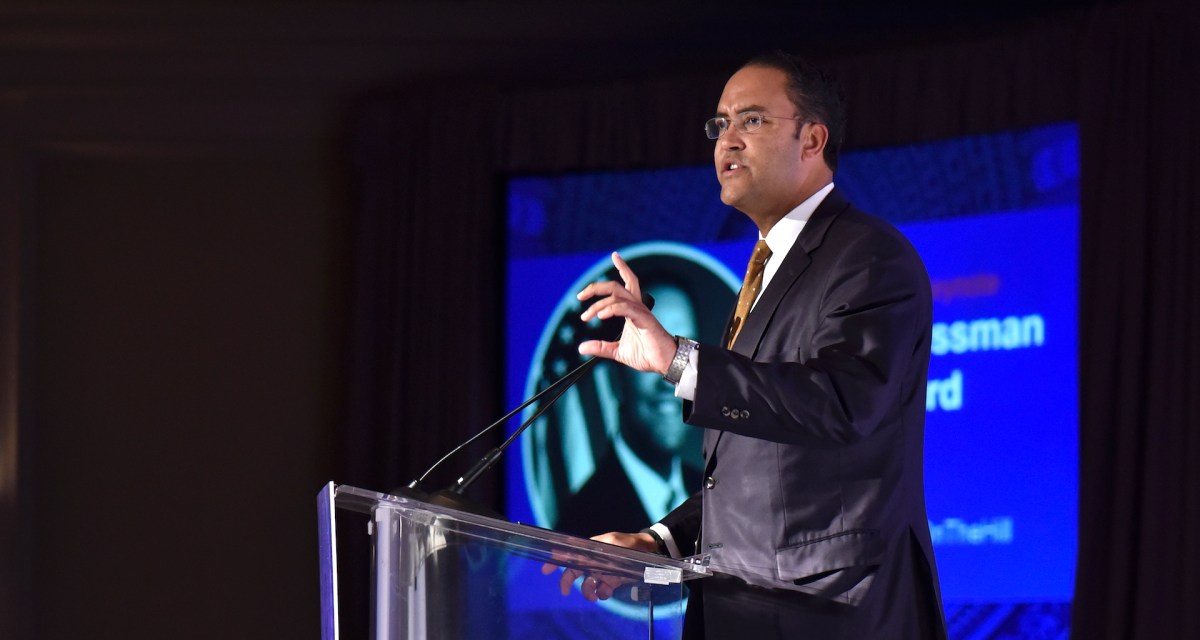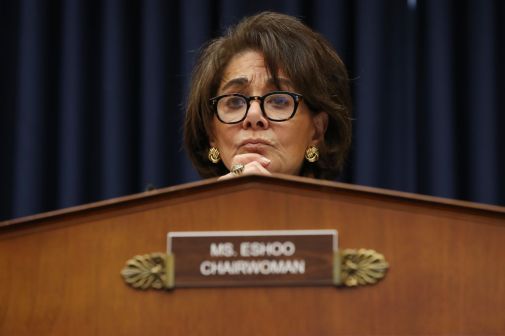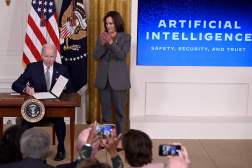Hurd, Kelly make final push to create a national AI strategy

Reps. Will Hurd, R-Texas, and Robin Kelly, D-Ill., proposed creating a national artificial intelligence strategy, based on four white papers from the Bipartisan Policy Center, in a concurrent resolution they introduced this week.
Hurd and Kelly’s resolution consists of 78 actions leading to responsible AI innovation and is the culmination of nearly a year of stakeholder meetings discussing policy challenges arising from AI, as well as research and development spending, workforce training, streamlined immigration for experts, and ethical issues. More than once Hurd said he wanted to create a national AI strategy solidifying the U.S.’s economic and national security leadership in the space before he leaves office in November.
“America leads the world in innovation, but to keep up we must embrace AI in the government, private sector and education,” Hurd said in the announcement Wednesday. “This means preparing America’s workforce, countering our adversaries’ commitment to AI, investing in R&D and shaping the ethical guidelines and rules of AI based on America’s values, not that of an authoritarian regime, like Russia or China.”
The Bipartisan Policy Center white papers informing the resolution cover workforce, national security, research and development, and ethics issues.
Education actions within the resolution include increasing technology education funding, restructuring computer and data science education so it begins sooner, improving workforce diversity, and supporting work-based training programs.
With respect to national security, the actions involve leading international forums establishing AI standards, engaging China and Russia on safety and crisis communications, ensuring ethical use at national security agencies, and partnering with allies to prevent foreign adversaries’ misuse.
On research and development, the resolution moves to significantly increase funding, develop voluntary standards alongside industry and academia, create a national computing and data resource, and increase access to supercomputing at the National Laboratories.
The ethics section of the resolution covers mitigating bias in AI, enacting privacy legislation and conducting oversight.
Reps. Steve Chabot, R-Ohio, Gerry Connolly, D-Va., Marc Veasey, D-Texas, Seth Moulton, D-Mass., Michael Cloud, R-Texas, and Jim Baird, R-Ind., all co-sponsored the resolution.
The two goals with AI should be establishing U.S. global leadership and moral responsibility, Connolly said in a statement.
“The important legislation we’re introducing today addresses those goals by calling for a unified national plan with respect to artificial intelligence that will place the United States at the forefront of this groundbreaking research both scientifically and ethically,” Connolly said.





